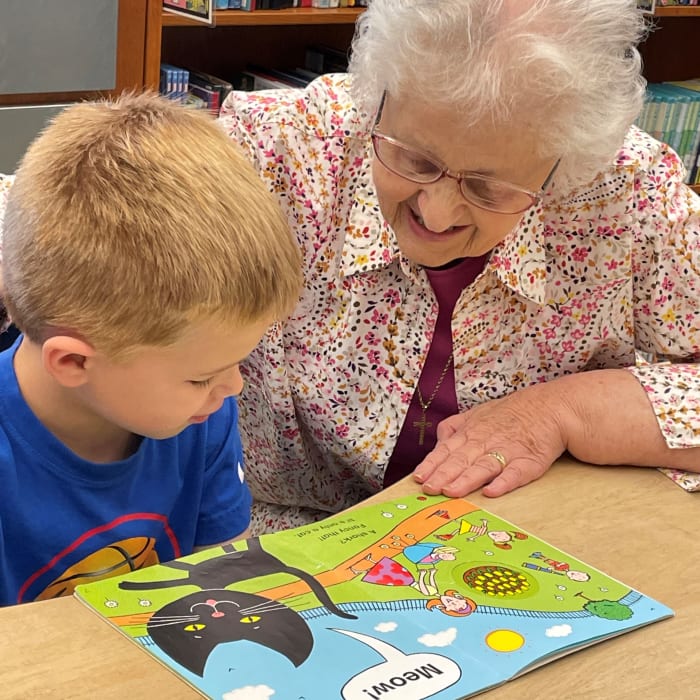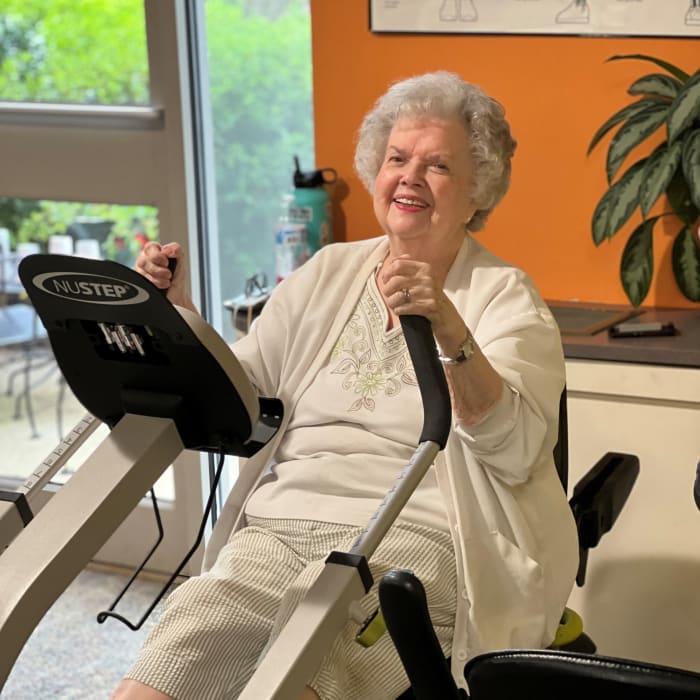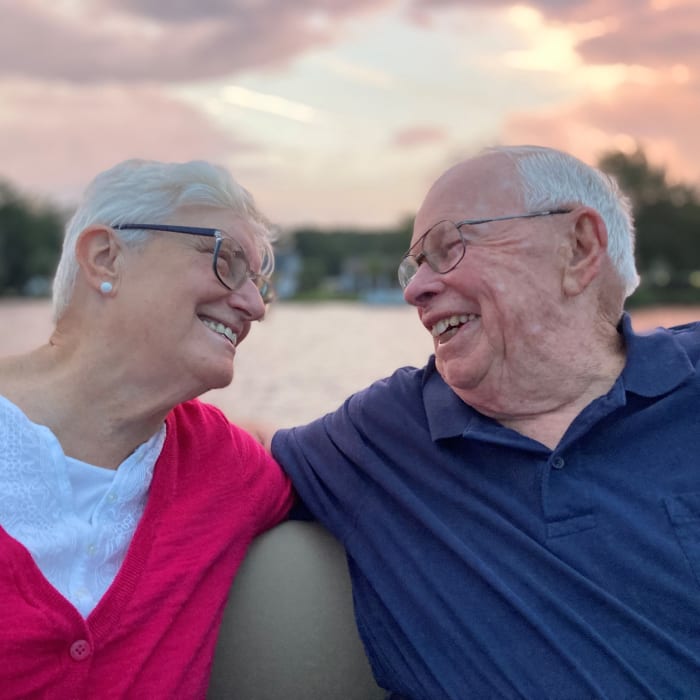Choosing the right care for your loved one
Birthdays, anniversaries and retirements are milestones that are clearly marked. But as parents and loved ones age, there’s no pre-determined age or event that signals when it’s time to hire in-home care or consider a move to a retirement community or other assisted living environment. The choice for each family will depend on many factors — but there are common signs and turning points that may indicate what kind of care your loved one needs.
Even as the world around us continues to change in unexpected ways, it’s important to evaluate your loved one’s needs and discuss what options will provide them with the amenities, health care and social environment they need in order to live the most fulfilling life possible.
Pay attention and take note
The first step in choosing the right level of care is evaluating your loved one’s current abilities, frame of mind, health outlook and home environment and financial situation. This may take research, observation and some pointed conversations to get the facts straight. Sometimes parents want to protect their adult children from the details of their lives — but in order to help them, it’s important to get a clear picture of them.
- Mental health and memory: Older adults may begin to experience changes that are more than passing mood swings or forgetfulness. Depression, isolation and dementia are all things to watch for. Keep an eye out for loss of interest in former passions, less contact with friends and family, chronic forgetfulness, missed appointments and medication. These aren’t always warning signs that help is needed but they may signal the need for a professional evaluation.
- Health and mobility: As adults age, health issues are an increasing concern. Chronic health conditions can worsen if not properly managed — and this may be a challenge for aging adults. From medication management to diet and exercise, ask your loved one if they are seeing a regular health care provider and following doctor’s orders. Accompany your loved one to appointments if possible and follow up with them afterward to make sure they have the resources to get the prescriptions, food and movement required to maintain health.
- Home and safety: Take stock of your loved one’s living environment. Is the home easy to maintain and care for? Can they move freely about the home? Are there safety hazards that need to be addressed? Also think about the community and location of the home: are they close to high quality medical care? Are there neighbors or family members nearby? Answers to these questions are crucial when determining how long your aging loved on can remain at home.
- Financial resources: Retirement savings, long-term care and estate planning are often subjects most people would like to avoid. First, try having an open conversation with your loved one about what plans they have made and what they would like. It might help to bring a financial professional into the conversation to provide an objective opinion of your family’s options.
Ask questions and listen
Once you’ve thoroughly assessed your loved one’s current situation, you can better understand what they need. But don’t forget to ask them what they want. Emotions surrounding decisions of home and independence run deep, and while you may not be able to honor all their desires — and still provide a safe and sustainable lifestyle — it’s important to listen and acknowledge those feelings.
Explore your options
Now comes the time to balance your loved ones needs, wants and long-term outlook to choose the right level of care for right now, with an eye on the future.
- Stay at home: Some people may be able to stay home and continue enjoying their current lifestyle with the assistance of loved ones, or by taking advantage of various services. This can be a good option if your loved one can still perform everyday activities without assistance (dressing, bathing, cleaning and cooking) and there’s an abundant existing support system to help with other necessities. It is also helpful if your loved one’s home is manageable in size and close to health care if needed. However, living alone can be socially isolating and even dangerous: there are risks of suffering an accident or health event with no one near to help. Consider technology solutions like medical alerts systems and security cameras to improve safety. Staying at home also may require modifications to make it safe and accessible as well as in-home aides to assist with care as your loved one ages.
- Independent retirement living. If your loved one is still active and independent, a retirement community can provide the social environment, secure surroundings and supportive lifestyle that can help them to thrive. Many independent retirement communities provide services like cleaning, laundry, maintenance and grounds keeping so your loved one has time and energy to pursue the things they love. Organized activities, classes, outings and clubs offer chances for older adults to stay engaged and socially active. Dining options on campus offer healthy, nutritious meals and menus just for seniors. Often, there is health care on-site, as well as fitness centers, pools, salons and other resources.
- Life plan or continuing care retirement communities. Many independent living communities offer several levels of care, so as seniors experience increased health or everyday care needs, they can remain in the community they are in — sometimes in the same home or apartment — with access to assisted living, memory care or skilled nursing. These can be a great option for independent seniors with health concerns or memory loss that are likely to progress over time.
- Assisted living or memory care. Assisted living is usually provided at a senior living community, rather than in the home, where the staff has the resources and support to care for loved ones who need help with everyday activities or suffer from health conditions that make mobility and self-care difficult. Some indications that your loved one may need more care than can be provided at home are: deterioration in personal appearance or appearance of the home, problems with managing chronic conditions, forgetting to take medications regularly, frequent accidents or falls, depression or other mental health changes. If your loved one is showing signs of memory loss including confusion, persistent forgetfulness and frustration, it may be time to consider memory care.
Start sooner than later
It’s natural to want to put off decisions about your loved one’s changing needs — but the sooner you begin to talk about and plan for the future, the more options you have. If a health event or accident forces you to make a decision it’s likely to be more stressful and constrained by time. By having the conversation now, you allow your parent or loved one to be a part of the decision-making process, rather than guessing at what their wishes may be. Look ahead to the future and imagine the best road forward for your loved one, starting today.






